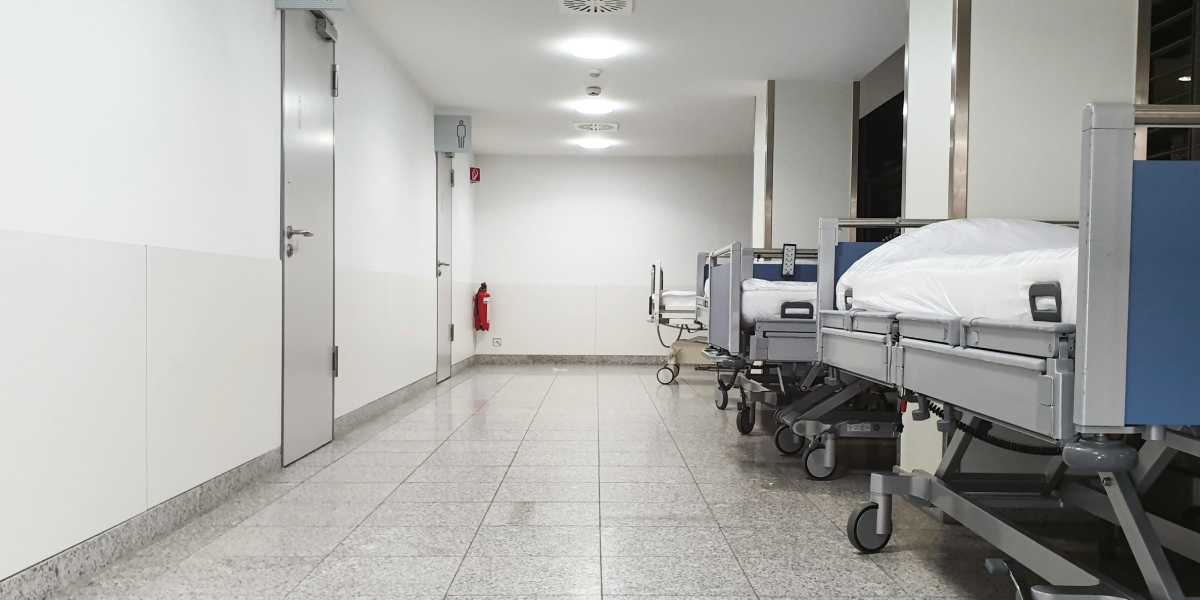Published Sep 15, 2025 | 9:29 PM ⚊ Updated Sep 16, 2025 | 2:11 PM

TGSRTC Hospital at Tarnaka in Hyderabad has won the NABH Entry-Level Certification
Synopsis: The Telangana Aarogyasri Network Hospitals Association (TANHA) has announced an indefinite suspension of Aarogyasri services across more than 330 affiliated private hospitals in the state from 16 September, citing unpaid dues of about ₹1,400 crore. Despite repeated assurances, the government has not cleared payments pending for nearly two years, forcing hospitals – mostly small and medium-sized facilities – to withdraw from the scheme.
The Telangana Aarogyasri Network Hospitals Association (TANHA) has announced an indefinite suspension of Aarogyasri services across all private network hospitals in the state from midnight on Tuesday, 16 September.
The decision follows the government’s failure to clear pending payments worth around ₹1,400 crore despite repeated assurances.
The Aarogyasri scheme is aimed at providing quality, cashless treatment of up to ₹10 lakh per family per year to eligible Below Poverty Line (BPL) households.
This is the second major strike in the state this year after the private professional and degree colleges strike. Dr Vaddiraju Rakesh, President of TANHA, said more than 330 hospitals, which form a key part of Telangana’s public health infrastructure, have been forced to take this step in the face of mounting financial pressures.
“About ₹1,400 crore in payments are pending for Telangana’s network hospitals, most of which are small to medium-sized facilities spread across the state,” Dr Rakesh said, adding that these hospitals provide services under several government health schemes, including Aarogyasri, the Employee Health Scheme (EHS), and the Government Health Scheme (GHS) for MLAs and their dependants.
The operating costs of these hospitals require about ₹150 crore every month, with ₹125 crore spent on hospital operations and ₹25 crore on salaries and other expenses.
However, Dr Rakesh said that “for nearly two years now, no payments have been released,” creating what he described as an unprecedented financial crisis.
TANHA’s decision to withdraw services follows extensive engagement with government officials over the past 20 days.
The association’s leadership held regular meetings with senior officials, including the Health Minister and the CEO of the Aarogyasri Health Care Trust (AHCT), to seek a resolution to the payment crisis.
While acknowledging that the Health Minister has made efforts to address the issue, TANHA alleged that both AHCT and the Health Department have consistently failed to honour their commitments.
This, the association said, is part of a long-running pattern.
“For nine years, TANHA has been raising the same demands without even changing a single line, but successive governments have ignored them,” Dr Rakesh said, adding that the association is “now forced to withhold services indefinitely” because of persistent problems and the inability of government agencies to keep their promises.
The indefinite suspension of services threatens to create a severe access crisis for thousands of Telangana residents who depend on government health schemes.
Aarogyasri cardholders, most of them from economically disadvantaged families, will be forced to seek care either at unaffordable private rates or in already overburdened government facilities.
The timing is particularly concerning, as this is the second major disruption in 2025. A previous 10-day boycott earlier this year was called off after government assurances of payment. TANHA maintains that these assurances have not been fulfilled, leaving the association with no choice but to escalate to indefinite action.
TANHA’s demands extend beyond clearing outstanding dues. The association has called for regular and timely payments, revision of package rates to reflect current treatment costs, redrafting of contracts to remove what it describes as one-sided clauses, and the establishment of a formal grievance mechanism for dispute resolution.
It has also asked for preferential payment arrangements for smaller hospitals, noting that large corporate facilities are better placed to withstand delays.
In addition, the association has demanded protection against unilateral changes to scheme terms through government circulars, to ensure greater stability and predictability for hospitals.
The crisis has hit smaller hospitals the hardest, especially those that serve rural and district-level patients. Many of these facilities, which typically have 50 to 80 beds or fewer, are the primary healthcare providers for Below Poverty Line (BPL) patients, particularly in peripheral and district areas.
“It is the smaller hospitals that are critical for BPL patients – the very group for whom Aarogyasri was originally designed,” Dr Rakesh said.
Unlike large corporate chains that have diversified revenue streams and financial reserves, most of TANHA’s member hospitals are family-run or small group practices managed by local doctors.
TANHA has also pointed to flaws in the Aarogyasri scheme that have worsened the crisis.
“Today, nearly 80 to 85 percent of the population holds Aarogyasri cards, though the scheme was originally meant for just 15 percent,” Dr Rakesh said, arguing that the expansion has significantly altered the way network hospitals operate.
The pricing structure under government health schemes has remained largely unchanged, with package rates last revised in 2009.
“Even though costs have multiplied many times since, the revision has only been partial and limited to a few uncommon procedures,” Dr Rakesh said.
The mismatch between stagnant package rates and rising treatment costs has created what hospitals call an unsustainable business model.
Hospitals are also mandated to reserve 10 percent of their beds for Aarogyasri patients. In practice, however, these patients now account for the majority of admissions.
“Out of every 50 beds in a hospital, we are supposed to earmark 5 beds (10 percent) for Aarogyasri patients. But now, with 85 percent of patients falling under this category, the entire system has tilted,” Dr Rakesh explained.
(Edited by Dese Gowda)

